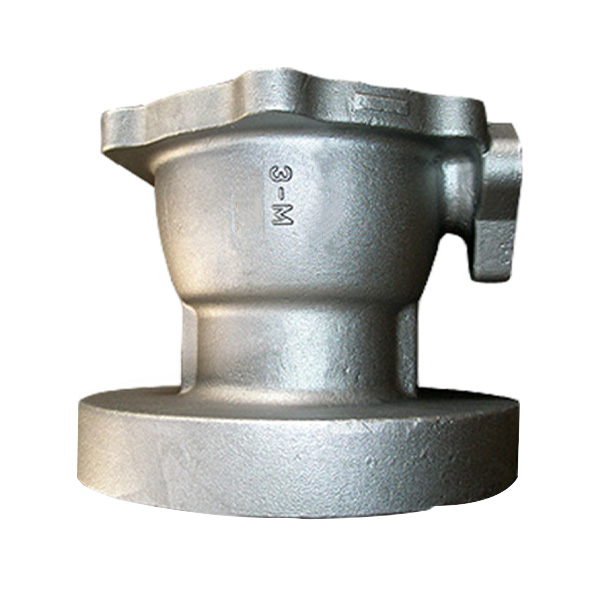Mobile:+86-311-808-126-83
Email:info@ydcastings.com
stainless steel castings manufacturer
The Importance of Stainless Steel Castings in Modern Manufacturing
Stainless steel castings play a crucial role in various industries due to their durability, corrosion resistance, and overall versatility. Manufacturers increasingly recognize the value of stainless steel as a material for casting, primarily due to its remarkable properties that make it suitable for a wide range of applications. This article delves into the benefits, processes, and applications of stainless steel castings, highlighting why they are a preferred choice for many manufacturers.
Understanding Stainless Steel Castings
Stainless steel castings are produced by pouring molten stainless steel into a mold, where it solidifies. This process allows for intricate designs and components that would be difficult or impossible to achieve through other manufacturing methods, such as machining or forging. The seamless nature of castings provides improved structural integrity and makes them less prone to failure, a critical factor in high-stress environments.
Benefits of Stainless Steel Castings
1. Corrosion Resistance One of the most significant advantages of stainless steel is its resistance to corrosion. This property is attributed to the presence of chromium, which forms a passive film on the surface, protecting it from environmental factors such as moisture, chemicals, and salt. Industries such as marine, food processing, and pharmaceuticals benefit immensely from this characteristic, as it ensures longevity and reliability.
2. Strength and Durability Stainless steel castings offer incredible strength and durability, making them ideal for high-pressure and high-temperature applications. They can withstand harsh conditions, making them suitable for construction, automotive, and aerospace sectors.
3. Versatile Designs The casting process allows for more complex geometries compared to other manufacturing techniques. This adaptability enables manufacturers to create components that are tailored to specific needs and specifications.
4. Cost-Effectiveness Despite the higher initial cost of raw stainless steel, the longevity and durability of stainless steel castings result in lower overall expenses. The extended lifecycle of these components means fewer replacements and less downtime, leading to increased efficiency and savings.
The Casting Process
The process of creating stainless steel castings generally involves several key steps
stainless steel castings manufacturer

1. Pattern Making A pattern is created based on the desired component's specifications. This can be made from various materials, including wood, metal, or plastic.
2. Molding The pattern is placed in a mold material, usually made of sand, which is then compacted around it. Once the mold is prepared, it is removed, leaving a cavity that replicates the pattern's shape.
3. Melting and Pouring Stainless steel is melted in a furnace, reaching a temperature of around 1,600°C (2,912°F). The molten metal is then poured into the mold cavity.
4. Cooling and Removal After allowing the metal to cool and solidify, the mold is broken away to reveal the casting. The casting often requires cleaning, including removing any excess material or surface imperfections.
5. Finishing Finally, the cast component may undergo additional processes such as machining, grinding, or polishing to meet the desired specifications and surface finish.
Applications of Stainless Steel Castings
Stainless steel castings find extensive use across various sectors.
- Aerospace and Automotive Components like brackets, valves, and housings require the strength and corrosion resistance that stainless steel provides. - Marine Industry Equipment exposed to seawater benefits from stainless steel's exceptional resistance to corrosion, ensuring the longevity of critical components. - Food and Beverage Stainless steel's hygienic properties make it the material of choice for manufacturers in food and beverage production, from processing equipment to storage tanks. - Oil and Gas The durability and toughness of stainless steel castings are vital for equipment operating in harsh environments, contributing to safety and efficiency.
Conclusion
As industries continue to evolve, the demand for high-quality materials like stainless steel castings will only grow. Their unique combination of strength, versatility, and corrosion resistance makes them indispensable in modern manufacturing. For businesses seeking reliable components that can withstand the rigors of various applications, partnering with a reputable stainless steel castings manufacturer is essential. By investing in stainless steel castings, manufacturers can ensure durability, safety, and efficiency in their operations, ultimately contributing to their long-term success.
-
Why Should You Invest in Superior Pump Castings for Your Equipment?NewsJun.09,2025
-
Unlock Performance Potential with Stainless Impellers and Aluminum End CapsNewsJun.09,2025
-
Revolutionize Your Machinery with Superior Cast Iron and Aluminum ComponentsNewsJun.09,2025
-
Revolutionize Fluid Dynamics with Premium Pump ComponentsNewsJun.09,2025
-
Optimizing Industrial Systems with Essential Valve ComponentsNewsJun.09,2025
-
Elevate Grid Efficiency with High-Precision Power CastingsNewsJun.09,2025











